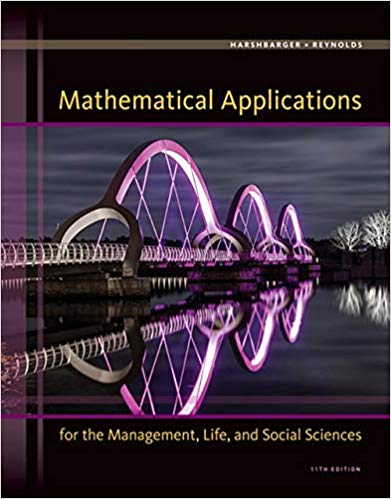When the interest on an investment is compounded continuously, the investment grows at a rate that is
Question:
(a) Solve this differential equation to find the relationship.
(b) Use properties of logarithms and exponential functions to write P as a function of t.
(c) If $50,000 is invested (when t = 0) and the amount in the account after 10 years is $135,914, find the function that gives the value of the investment as a function of t.
(d) In part (c), what does the value of k represent?
Fantastic news! We've Found the answer you've been seeking!
Step by Step Answer:
Related Book For 

Mathematical Applications for the Management Life and Social Sciences
ISBN: 978-1305108042
11th edition
Authors: Ronald J. Harshbarger, James J. Reynolds
Question Posted:





